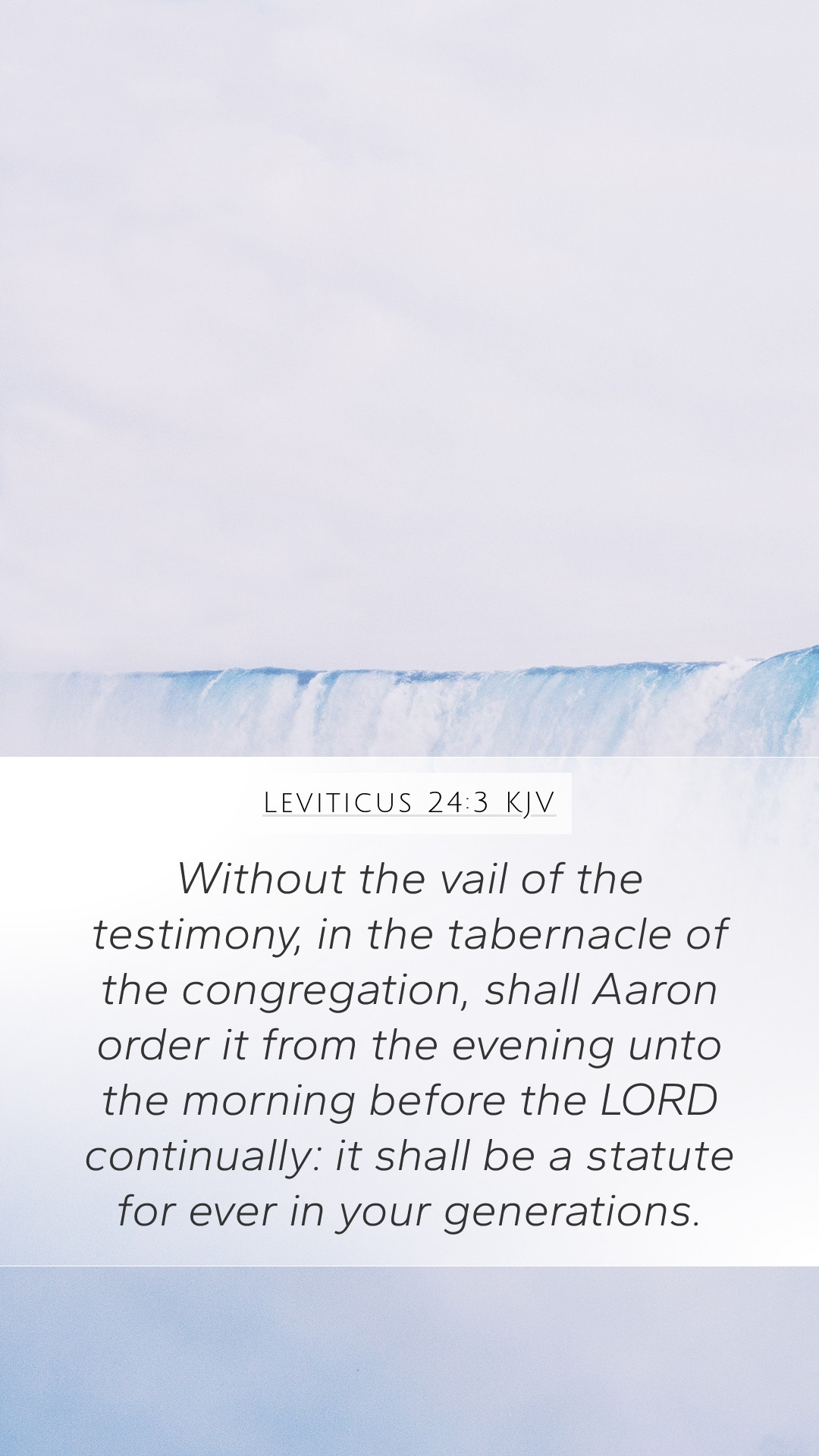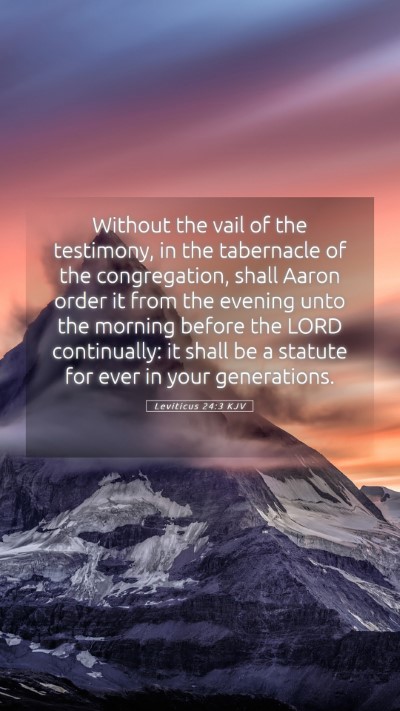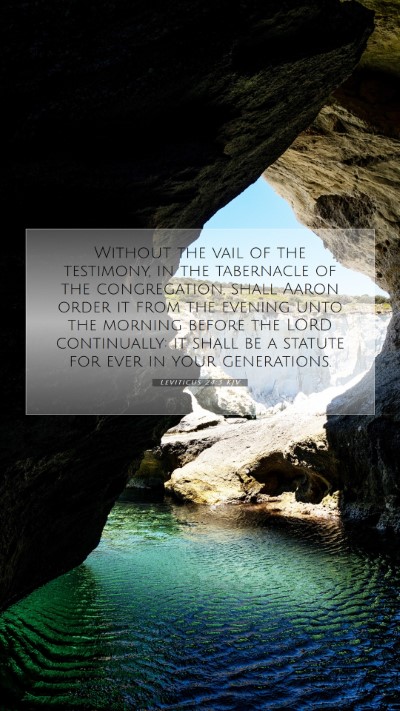Understanding Leviticus 24:3
In Leviticus 24:3, the verse states:
"Outside the veil of the testimony, in the tabernacle of the congregation, shall Aaron order it from the evening unto the morning before the Lord continually: it shall be a statute forever in your generations."
This verse emphasizes the importance of maintaining a constant and orderly worship before God. Here we will explore its meaning through insights drawn from esteemed public domain commentaries, including those by Matthew Henry, Albert Barnes, and Adam Clarke.
Verse Meaning and Context
This verse falls within a section of Leviticus that outlines the rituals and responsibilities relating to the tabernacle and the priesthood. It addresses the duties of Aaron, the high priest, regarding the lampstand and the bread of the Presence. This continuity of worship is significant as it illustrates the perpetual nature of the covenant relationship between God and His people.
Matthew Henry's Commentary
Matthew Henry emphasizes that this endless duty of ordering the lamps signifies the necessity of maintaining spiritual light within the community of believers. The lamps represented divine illumination, suggesting that worship and obedience to God should be a daily endeavor. The instruction for Aaron to tend to the lamps speaks to the priest's role as a mediator, ensuring that the light of God’s presence continually shines upon His people.
Albert Barnes' Insights
Albert Barnes reflects on the logistical aspect of Aaron's duties. He notes that the phrase “from evening unto morning” indicates a complete cycle of care, symbolizing the need for vigilance in spiritual matters. Barnes suggests that this verse teaches about the importance of consistency in worship as essential to the community's spiritual health. Furthermore, he points out the reference to “a statute forever,” asserting that these practices were not merely ceremonial but were foundational principles for Israel's worship throughout generations.
Adam Clarke's Analysis
Adam Clarke offers a detailed exploration of this verse by analyzing the elements of the tabernacle and their significance. He explains that the “veil of the testimony” was a sacred boundary, indicating the separation between the holy place and the Most Holy Place. This reflects the profound reverence required in approaching God. Clarke also discusses how this setting points to the necessity of divine order and holiness in worship, further reinforcing that God desires a structured approach to His service.
Key Takeaways for Bible Study Groups
- Continuous Worship: This verse teaches that worship should not be sporadic; instead, it is a continual, dedicated practice.
- Spiritual Vigilance: The emphasis on the evening-to-morning care of the lamps suggests a need for vigilance in maintaining one's spiritual life.
- Covenant Relationship: The directive portrayed reflects the ongoing relationship and commitment between God and His people.
- Role of Mediators: Understanding the role of the high priest as a mediator emphasizes the theological implications of Christ as our ultimate intercessor.
Application of the Verse
In applying Leviticus 24:3 to daily life, Christians are encouraged to consider:
- How they can cultivate a consistent practice of worship and prayer in their own lives.
- Ways to illuminate their surroundings with godly principles, much like Aaron tended to the lamps.
- The importance of their role within their spiritual communities as sources of light and order.
Related Scriptures
- Exodus 27:20-21: Instructions about the oil for the lamp, amplifying the importance of the lamp in worship.
- Hebrews 9:2: Reference to the tabernacle arrangement underscoring the sacredness of the space.
- Matthew 5:14: Jesus’ teaching on being the light of the world relates to the concept of maintaining spiritual illumination.
- 1 Thessalonians 5:5: Paul speaks about believers being children of light, which connects back to the theme of continual light.
Conclusion
Leviticus 24:3 carries significant meaning, emphasizing the necessity of consistent worship, order, and the sacred nature of the relationship God has with His people. By studying this verse through the lens of historical context and theological implications highlighted by various commentaries, believers can gain profound insights into their spiritual practices. The enduring truth of this scripture encourages believers to be diligent in their faith commitments, ensuring that they reflect God’s light in their lives.
This analysis serves as a profound example of how to interpret Bible verses, offering clarity and understanding for those engaging in Bible study groups and seeking deeper insights into the scripture. Whether you are looking for study guides, lessons, or online resources, the reflection on such verses provides valuable content for spiritual growth.


